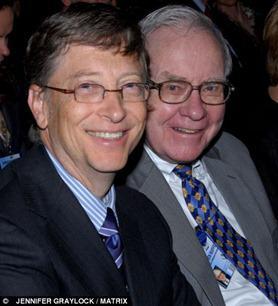 Every first-time entrepreneur, or even an experienced founder stepping into a new business area, needs a mentor. Nothing you have ever done raises so many questions, or has the potential to be so fulfilling, or so risky, as starting a new business for the first time. A mentor is a confidant who has been there and done that, and is willing to guide your steps.
Every first-time entrepreneur, or even an experienced founder stepping into a new business area, needs a mentor. Nothing you have ever done raises so many questions, or has the potential to be so fulfilling, or so risky, as starting a new business for the first time. A mentor is a confidant who has been there and done that, and is willing to guide your steps.
In case you think mentors are only for “wimps,” you should know that most great entrepreneurs are quick to give credit to their mentors. Bill Gates always revered the early guidance he received from Dr. Ed Roberts, creator of the Altair 8800. Later, the great Warren Buffet became his mentor on many corporate matters.
In a reverse fashion, most of the recognized business gurus always found time to be a mentor. For a fortunate, surprisingly large club of CEOs, the late Peter F. Drucker was the single most lucid, eloquent, and encouraging force in their lives. With experts like this willing to help for free, why should you be the one to go it alone?
The best mentor candidates are the most experienced professionals you admire, and from whom you can learn, to accelerate your progress and avoid the deep potholes in the road ahead. Martin Yate, in his recent book “Knock 'em Dead - Secrets and Strategies for Success in an Uncertain World” succinctly outlines the key criteria for choosing mentors:
- Mentoring is not a group activity. Mentors are not like lovers. You can have more than one at a time. But my advice is to start with one, or certainly no more than one in an area of expertise. It could make sense to have a business mentor, as well as a technology mentor, but a committee of your friends won’t work.
- The best mentors are older than you. Although age and wisdom don’t always go together, it is better to find a mentor older than you, because they will have skills you don’t and the wisdom of greater experience. You need both.
- Let the relationship develop naturally, over time. Mentor relationships, like any other human relationship, don’t happen overnight, and need to be nurtured on a person-to-person basis, rather than remotely or anonymously. The best mentors will even introduce you to their support network, which can multiply the value.
- The mentor should not have a direct reporting relationship with the protégé. The protégé should be able to feel free to speak about issues which may be plaguing him without fear of repercussions from a major board member, investor or boss.
- The mentor must be committed to being a mentor. Mentoring is an incredibly important responsibility. If the mentor does not want this responsibility, he will view the time spent mentoring as a nuisance. Being committed means being available, listening well, and able to keep confidences.
- Find someone who will tell it straight. Telling it straight means having direct discussions that are constructive, respectful, and specific. Both sides need the courage to stop if the relationship isn’t working. Life is too short to waste their time or yours. In this context, it’s also important to find someone who matches your values.
Remember that a good mentor doesn’t relieve you of any responsibility in running your business. Be aggressive and take charge of your own decisions. Don’t expect the mentor to do the work for you, or even the research required to get a job done. In other words, don’t abuse the mentor, by asking them to be your boss, or respond to every thought that pops into your head.

